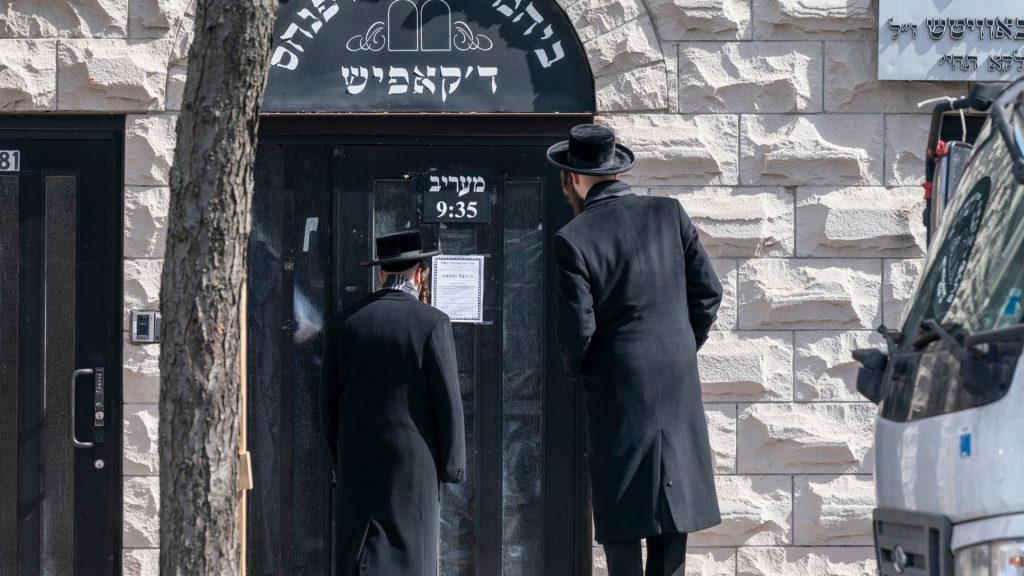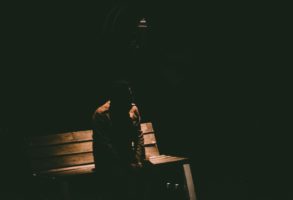
Published March 28, 2020
In recent days, a stark distinction between two groups of Orthodox Jews made national news. Rabbi Hershel Schachter, the dean of Yeshiva University’s rabbinical seminary, was unequivocal in stating that religious communal gatherings, such as prayer services and study groups, should be suspended due to the coronavirus threat.
His guidance was issued in early March and was swiftly followed by Jewish communities across the United States, many of which shut down synagogues and Jewish schools almost immediately.
Meanwhile, Rabbi Haim Kanievsky, an acknowledged Jewish legal authority among a wide swath of Hareidi Jews in Israel, initially ruled that private schools should remain open, though he has since modified his stance to an extent. (It should also be noted that other Hareidi leaders ruled differently, including the chief rabbi of Israel.)
Both Modern Orthodox and Hareidi Jews strictly observe the Sabbath, kosher laws and myriad other tenets that govern religious life, including those regarding daily prayer with a quorum of 10 men. Apart from certain differences in dress and cultural norms, their religious worlds are very similar. Yet the philosophical difference in their approaches to the coronavirus is not a shallow one, and should be better understood.
For Rabbi Schachter, the decision to prohibit synagogues and schools from operating was quick, stemming as it did from the legal principle of pikuach nefesh — that saving a life trumps any other religious act, no matter how sacred. This principle is rooted in the Hebrew Bible’s injunction to not only follow the Almighty’s commandments, but to “live by them.” (Leviticus 18:5).If following a commandment entails a risk of death, then, according to this principle, Jews are enjoined to violate that commandment.
The violation in such cases is viewed as a virtuous act. If someone is dangerously ill, for example, there is no question that driving to the hospital on the Sabbath would be permitted, even though driving is otherwise prohibited on that day. Orthodox Jewish doctors frequently violate Sabbath law in tending to patients, though such violations would be unthinkable in other circumstances. For Modern Orthodox communities in America and elsewhere, all this goes without saying, and is simply part of religious law.
So why did Rabbi Kanievsky arrive at a different conclusion? The answer is rooted in another long-standing line of religious thought — the idea that fulfilment of the Almighty’s will provides its own form of protection. This speaks to a basic religious dilemma regarding how much control we have over the physical world, as opposed to how much we rely on G-d.
In some ways, the coronavirus seems designed to provoke such questions. It poses a grave threat to many, but some, like Sen. Rand Paul and certain NBA players, have tested positive with no symptoms whatsoever. It has spread swiftly in Italy, but less quickly in Japan, for reasons that are yet unclear. Despite the best efforts of countless health professionals, we still have more questions than answers.
There is also a deeply held belief, in both Modern Orthodox and Hareidi circles, that the religious activities of communal study and prayer provide physical and spiritual benefits to participants and the world. The suspension of these activities is therefore not only traumatic and isolating, but can pose its own dangers.
Modern Orthodox communities have attempted to fill this void with such things as online communal prayer services, though these services are limited due to the lack of an in-person quorum. Many Hareidim spurn Internet use — for good reason — and so do not have these options readily available.
But this is not their only consideration. The way some Hareidi Jews have approached the generally unquantifiable coronavirus risk has roots in other biblical traditions. In the Purim story, for example, Queen Esther put herself in apparently grave danger when she approached King Ahasuerus to ask him to save her people, and did this only after the Jews of Shushan had fasted and prayed for three days straight.
In the Book of Daniel, three young Jewish princes refused to bow down to an idol crafted by Nebuchadnezzar, and were thrown into a fiery furnace as punishment. They emerged unscathed. Lord Byron wrote a memorable poem, “The Destruction of Sennacherib,” which celebrated the triumph of spiritual warfare in the time of Isaiah.
There is no doubt that the religious groups who closed shop and turned to online services were correct. The principle of pikuach nefesh, of living by the laws and not dying by them, is integral to Jewish practice and belief. But the idea that suspending normal religious life presents a spiritual compromise shouldn’t be summarily dismissed.
There is a perennial tension between doing our due diligence in guarding against physical dangers and relying on God, and trust in Divine protection is present not only in Jewish thought, but in all monotheistic religions. As we move forward day by day, we will have to make such judgments over and over again.
Devorah Goldman is a visiting fellow at the Ethics and Public Policy Center, and a research analyst at the Tikvah Fund.








